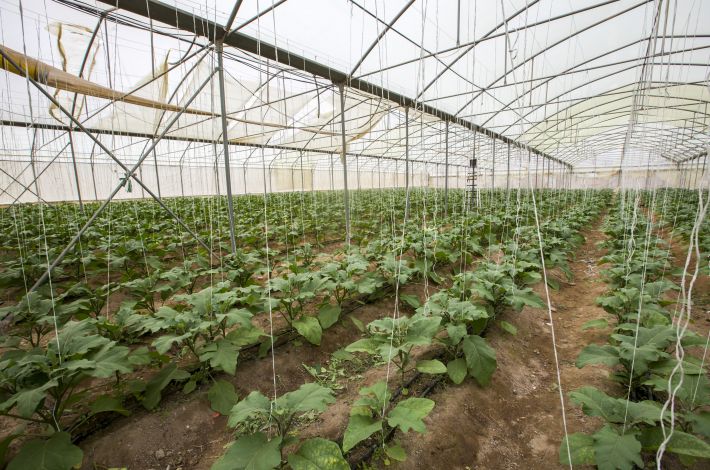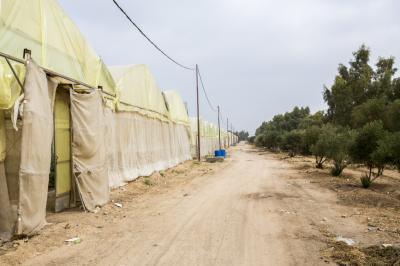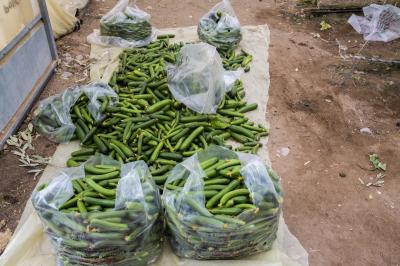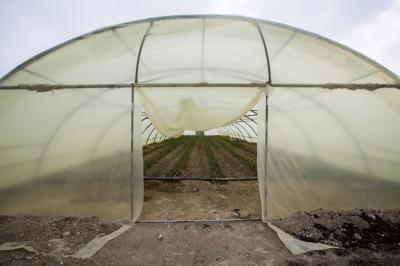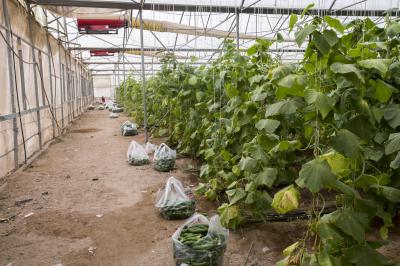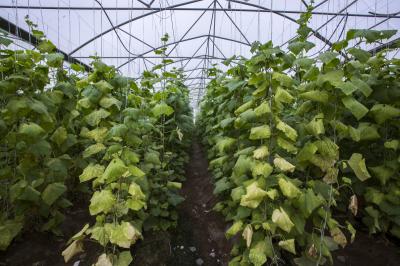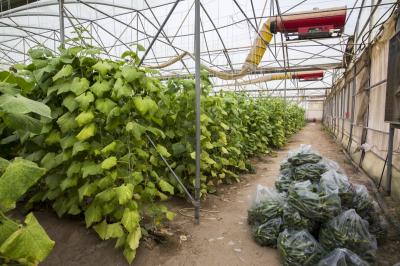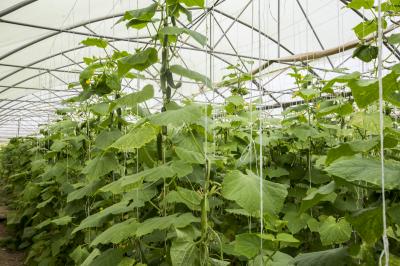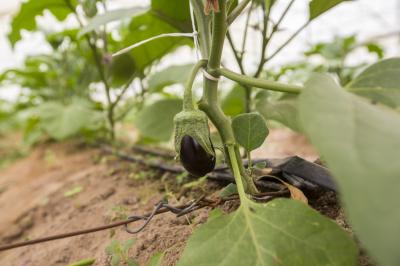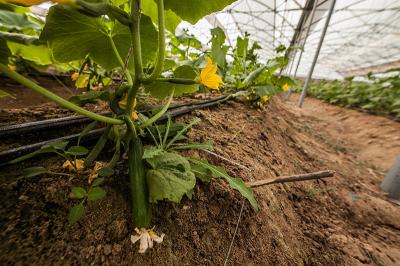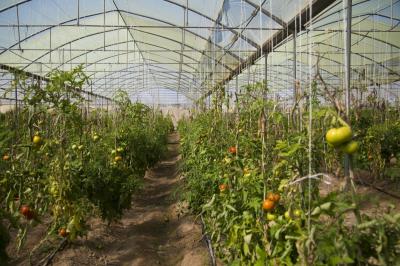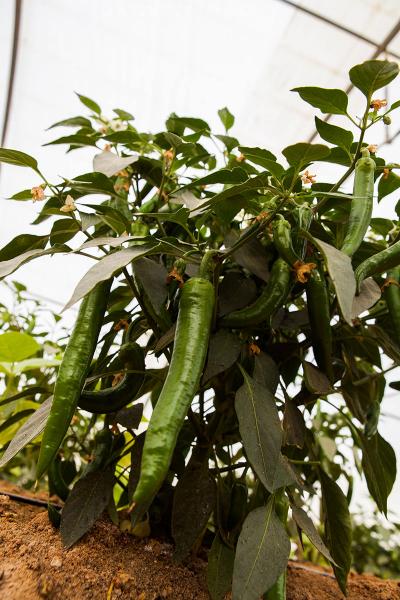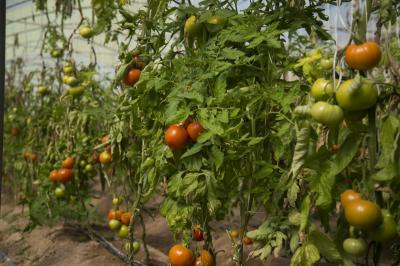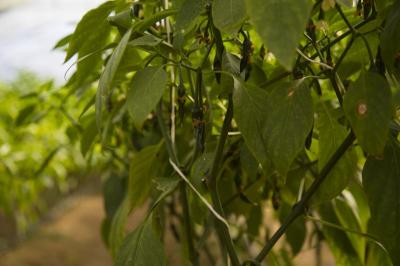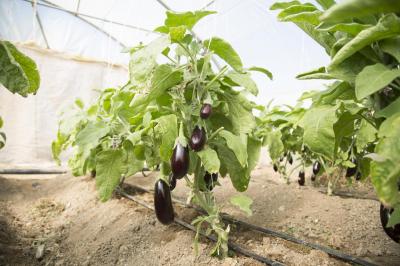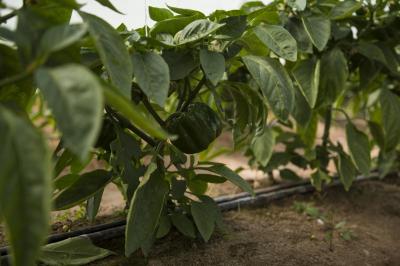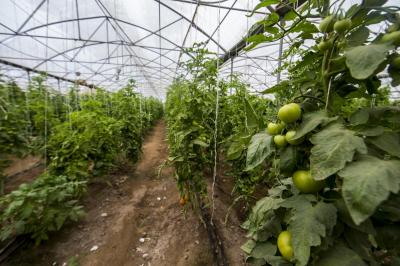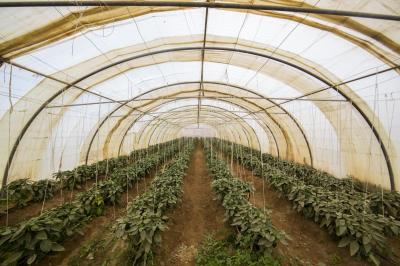How did the al-Abbas's (p) Holy Shrine contribute to self-sufficiency in agricultural crops and increased production? How was it able to contribute to covering the needs of the local market for its agricultural products, especially those that have a direct relationship with the citizen's life? How did it manage to reduce the gap between its products and the importer? How did they contribute to the employment of the workforce and the reduction of unemployment?
A set of questions carried by the al-Kafeel Global Network to the Department of Agricultural Affairs and Livestock at the al-Abbas's (p) Holy Shrine, during its meeting with the head of the Department, engineer Ali Mazal Laieth, who answered saying: “The agricultural sector is one of the sectors to which the al-Abbas's (p) Holy Shrine has given great attention and harnessed human and material capabilities, in an effort to support agricultural production and use large areas of land to contribute to increasing the local product in a way that contributes to achieving self-sufficiency, and offering job opportunities for a large number of workers specializing in this important and vital area, which has recently witnessed remarkable reluctance on the part of farmers, due to the obstacles that hinder their projects. The farms of khairat Aba al-Fadl al-Abbas (peace be upon him) are only one of these projects that lead to the aforementioned purpose, and a vivid model for reclaiming and converting barren lands to rich and productive green oases. "
He added: "One of the investment projects adopted by the al-Abbas's (p) holy shrine in this field is the project (Khairat Aba al-Fadl peace be upon him), which produces many varieties of agricultural crops that are in direct contact with what the citizen needs, such as: tomatoes, eggplant, and potatoes, in addition to cucumbers, peppers and some other leaf crops, such as melon and watermelon."
He continued: "The al-Abbas's (p) holy shrine has spared no effort to supplement the project with the latest agricultural scientific methods and techniques used in the countries of the world, starting from seeds, greenhouses, irrigation water and methods of agricultural pest control to other matters, which comes as a final result to reaping a crop of benefit and nutritional value and that is environmentally friendly."
Noting: "The project aims to:
1- Investment of uncultivated agricultural lands.
2- Contributing to eliminating unemployment by employing manpower.
3- Benefiting from the Iraqi agricultural expertise.
4- Introducing modern technologies that contribute to increasing the product and making it have more nutritional value.
5- Contributing to the self-sufficiency of agricultural crops without relying on the importer.
6- Return the prestige and name of the agricultural crops that Iraq was abundant with.
7- The farmer is considered a research window through which researchers and specialists look to conduct and apply their research that has theoretically proven successful.
8- Delivering a fresh crop to the consumer.
9- Contributing to controlling crop prices, given that crops are available throughout the year.
10- Introducing new varieties of agricultural crops.
11- Investing groundwater in the ground.
He added, "The farm is established on an area estimated at (60) dunums, equivalent to (150,000 square meters), and includes (160) of the most recent greenhouses equipped with all the equipment needed by the crop, and we have a future plan aimed at increasing the area. Every day, these houses provide more than (40) marketing centers in the holy city of Karbala and its districts, as well as the province of Najaf, and we strive to deliver crops daily in quantities that do not allow them to remain stored in the sales centers to ensure that their freshness."
He explained: "And all of them are distinguished by their high productivity, fast growth and high quality, in addition to their resistance to viral and fungal diseases and their suitability with the atmosphere of Iraq, and they are superior to imported varieties in terms of quality and taste, they are environmentally friendly (APM) and organic fertilizers are used for them instead of chemical, as we do not use Chemical pesticides in an excessive way, because we use some of the organic and biological fertilizers and pesticides produced by Al-Joud Company affiliated with the al-Abbas's (p) Holy Shrine."
It is noteworthy that the farm is located on the road (Karbala - Najaf) near Column 56, and that all of its products are delivered to the marketing centers of Noor Al-Kafeel Company.
